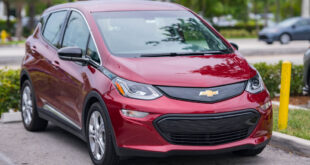Electric Car Purchase Tips: Making the Right Choice Electric cars (EVs) have become an increasingly popular choice for environmentally conscious drivers and those looking for long-term cost savings. However, choosing the right electric car can be challenging, especially with the wide variety of options available. This comprehensive guide provides everything you need to know before making a purchase.
Why Choose an Electric Car?
Electric vehicles offer a sustainable alternative to traditional internal combustion engine (ICE) vehicles. They produce zero tailpipe emissions, require less maintenance, and can significantly reduce fuel costs. Additionally, governments worldwide are offering incentives to promote the adoption of EVs, making now an excellent time to make the switch.
Factors to Consider Before Buying an Electric Car
1. Budget Planning
Before purchasing an EV, determine your budget. Include costs such as the vehicle’s price, insurance, charging equipment, and long-term savings from lower fuel and maintenance expenses.
2. Range Requirements
Evaluate how far you typically drive in a day. Modern EVs offer ranges from 150 to over 500 miles per charge. Choose a model that meets your commuting or travel needs.
3. Charging Infrastructure
Check the availability of charging stations in your area or along your usual routes. If you plan to install a home charger, research installation costs and compatibility.
4. Battery Life and Warranty
The battery is the most critical component of an EV. Investigate the manufacturer’s warranty and the battery’s lifespan. Most offer warranties for 8 years or 100,000 miles.
5. Vehicle Size and Features
Consider the size of the car and whether it fits your lifestyle. Compact models suit city driving, while larger EVs may be ideal for families. Look for advanced features such as regenerative braking, infotainment systems, and safety tech.
Advantages of Electric Cars
- Lower Operating Costs: Electricity is cheaper than gasoline, and EVs require fewer maintenance services.
- Eco-Friendly: Reduced carbon emissions contribute to environmental sustainability.
- Performance: Electric motors deliver instant torque, offering a smooth and quick acceleration.
- Government Incentives: Tax credits and rebates are available in many regions to offset purchase costs.
10 Essential Tips for Buying an Electric Car
- Research Vehicle Options: Explore brands and models to find the best fit for your needs.
- Check Charging Speed: Look for fast-charging capability to reduce downtime.
- Compare Total Ownership Costs: Factor in fuel, maintenance, and potential subsidies.
- Test Drive: Experience the car’s handling, comfort, and features firsthand.
- Investigate Resale Value: Some EVs hold their value better than others.
- Plan for Charging at Home: Invest in a Level 2 charger for convenience.
- Consider Future Needs: Account for battery upgrades and growing charging networks.
- Read Reviews: Learn from other buyers’ experiences.
- Understand Warranties: Ensure the vehicle’s battery and components are covered.
- Stay Updated: EV technology evolves rapidly—keep an eye on innovations.
Frequently Asked Questions (FAQs)
- How long does it take to charge an electric car?
Charging time varies depending on the charger type. Fast chargers can charge an EV up to 80% in 30 minutes, while home chargers may take several hours. - What is the lifespan of an EV battery?
Most EV batteries last between 8-15 years, depending on usage and care. - Are electric cars cheaper to maintain?
Yes, EVs have fewer moving parts, reducing the need for regular maintenance. - Do EVs perform well in cold weather?
EVs can lose range in cold weather, but pre-conditioning the battery and cabin can mitigate this. - Can I charge my EV using solar panels?
Yes, solar panels can provide an eco-friendly way to charge your EV. - What happens if I run out of battery?
Similar to running out of gas, your EV will stop. Plan your trips and use charging apps to avoid this. - Are electric cars safe?
Most EVs undergo rigorous safety testing and include advanced safety features. - Do electric cars have good resale value?
Resale values vary by model and market demand, but popular models often retain value well. - Can I tow with an electric car?
Some EVs are designed for towing, but you’ll need to check the vehicle’s specifications. - How can I find charging stations?
Apps like PlugShare and ChargePoint can help locate nearby stations.
Conclusion
Electric cars represent the future of transportation, offering a greener, more cost-effective solution for daily commuting and long-distance travel. By understanding your needs and thoroughly researching your options, you can make a confident and informed purchase.
As technology advances, the benefits of electric vehicles continue to grow. Now is the perfect time to embrace this innovative mode of transportation, reduce your carbon footprint, and enjoy the many advantages of EV ownership.
 oto car insurance used car repair
oto car insurance used car repair
